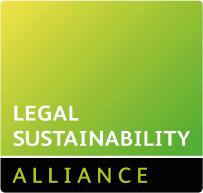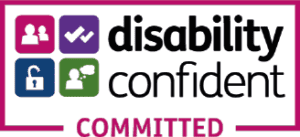Our clients are typically at early stages of a civil dispute, commonly looking for a ‘quick exit’, therefore value for money, a speedy response and a concise report may be all that is required to achieve the desired outcome.
The defendant lawyer, however, is at the crucial stage – litigation and a possible trial at court. By its very nature, litigation will involve significant disputes to be resolved involving joint experts and that’s where we rely on, and judge, our expert witnesses.

Published and featured in ‘The Assessor’
When a client says, “I’ve got this great case, but it’s going to need an expert engineer to look at it – who would you recommend?”, it’s not always that easy to provide a definitive answer. We all have favourites, but often for entirely different reasons.
Our clients are typically at early stages of a civil dispute, commonly looking for a ‘quick exit’, therefore value for money, a speedy response and a concise report may be all that is required to achieve the desired outcome.
The defendant lawyer, however, is at the crucial stage – litigation and a possible trial at court. By its very nature, litigation will involve significant disputes to be resolved involving joint experts and that’s where we rely on, and judge, our expert witnesses.
Expert witness duties
Those at the top of their game will have a thorough understanding of their duties, as set out in Part 35 of the Civil Procedure Rules. But hang on, doesn’t every report we see contain a signed declaration of compliance with the rules? Yes, they all do, but how many of those experts could actually recite any of those duties, if asked in cross examination? It’s quite worrying to see how many times we see in an expert’s declaration (usually our opposition, thankfully) that they have complied with their duties, but which, on examination, appear to show no observation of those duties at all. This is the ‘low hanging fruit’ for an opponent seeking ways to discredit them.
The need for independence
Independence is critical and bias in particular can have negative and sometimes devastating consequences. The accusation of ‘trying too hard’ is a polite way of saying that some reports are written, either unconsciously or even deliberately, for the benefit of the instructing party. Sure, the instructing party will initially be over the moon when they receive the written opinion, as it supports their argument. But if that can’t be backed up by sound facts or reason if challenged, then what use is it in court?
The number one piece of advice for experts producing a report is that they should at all times assume they will have to defend the contents of their report under hostile cross-examination in court. In turn, they should produce a report which only contains opinions they are entirely confident about. How experts perform under scrutiny is a critical factor.
What an expert can say with confidence and what they can’t, are almost as important as each other. The rules state that, “…if insufficient data is available, then this must be stated with an indication that the opinion is no more than a provisional one”. If there is a range of opinion, the expert, “must summarise the range of opinion”. These are all really important points, and the instructing party will need them to be clearly identified. There are obvious areas where any weaknesses will become exposed – at conference, at joint report stage and at trial.
Advisory reports
Advisory reports are quite popular with the lawyer community, this being a cost-effective ‘triage’ option usually based on images or opponent reports alone, with the expert giving an indication of what opinions are realistically possible and indeed likely, based solely on the evidence available.
Clear reasoning
The rules also say that an expert witness should, “state the facts or assumptions on which opinions are based” and, “give reasons for the expert’s own opinion”, which can often be overlooked. We regularly encounter reports which state facts, such as a vehicle being undriveable, with a “yes/no” tick box next to it, in reality, this is no help to anyone as it immediately begs the question – why? The ability to communicate clear reasoning is likely to be a key factor influencing a judge’s decision and is a major difference between the best and worst experts. A good expert will succinctly articulate why they have arrived at a particular conclusion, not simply that they have done so.
Joint expert evidence
The skills required to deal with joint expert evidence encompass far more than simply technical expertise. Where joint experts have differing opinions, often a diplomatic and pragmatic approach is required. That doesn’t mean conceding the more important points or allowing yourself to be bullied by pushy opponents, it’s more about accepting concessions where it is appropriate to do so and identifying areas where there is a potential risk your opponent’s opinion could be favoured, even if you don’t necessarily agree with it. In contrast, where you have absolute certainty of opinion, don’t concede any ground just for the sake of compromise.
Clear and concise presentation
Finally, in terms of presentation, the message is simply to keep it clear and concise. Never assume the reader knows anything more than that which comes with the most basic common sense. The reality is that most judges don’t want to get bogged down with masses of technical information, other than in the most serious of cases. User-friendly reports that ‘tuck away’ unnecessary or peripheral information into appendices make for much easier reading. More is definitely not always better.
To revert to the initial question, “who would you recommend?”, you may now be able to spot that defendant lawyers are a demanding bunch! Those who truly understand their key duties and legal principles as expert witnesses are the ones who will ultimately find favour.
You may also like

Supreme Court Decision on Mixed Injuries
The Claims Industry is at a Pivotal Moment The Supreme Court has handed down judgment in the whiplash ‘mixed injury’...

What will 2023 bring for open-source intelligence investigations?
As technology continues to advance and evolve, it is likely that we will see developments in the field of open-source...

Nuisance claim calls – will the government’s latest proposals make a difference?
When our newly crowned King delivered the 2022 Queen’s Speech on her behalf in May, the announcement of the Data...

Product Liability Bitesize – September Edition
It’s been a busy time since the first edition of our regular product liability update. The Queen’s Speech heralded new laws...





